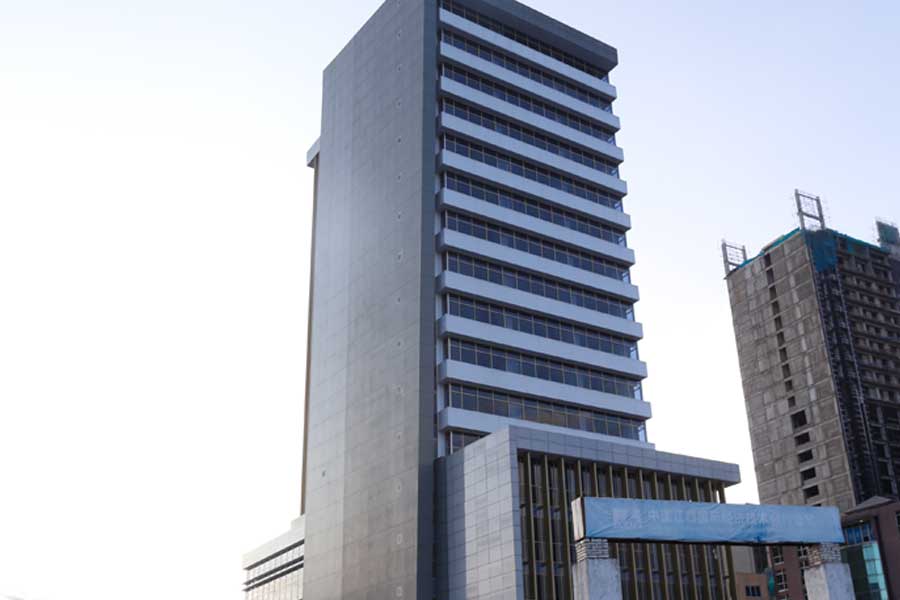
Sep 10 , 2021
By Asegid Getachew
The world is reeling from the disastrous effects of climate change. Globally, an estimated 51 billion tonnes of greenhouse gasses are emitted into the atmosphere every year. Disasters such as floods, wildfires, tsunamis and famines have now become a common phenomenon. And not a single day passes by without some horrific climate change-related incident happening in some part of the globe.
Environmental issues have become major concerns for nations, organisations and individual consumers. Consumers, for instance, have become more environmentally conscious. They make an informed choice regarding the environmental impact of the items they are buying. They also select buyers based on the extent of their engagement and care for the environment.
An estimated 66pc of global consumers are willing to pay more for a product deemed environmentally safe. Among millennials, that number jumps to 72pc. Such actions of consumers should have somehow forced organisations to consider the issue of the environment seriously. But it did not.
Companies are responding through the practice of “Greenwashing,” an attempt to build a positive image regarding environmental engagement while, in reality, their actions are adversely damaging it. Close to 95pc of companies who claim to be “greener” hide behind what is known as “The Sins of Greenwashing,” according to Terra Choice, a private marketing and environmental consultancy based in Canada.
There is the “sin of the hidden trade-off," committed by suggesting a product is “green” based on an unreasonably narrow set of attributes without attention to other important environmental issues. "Sin of no proof" is where they commit by an environmental claim that cannot be substantiated by easily accessible supporting information or by a reliable third-party certification. The "sin of vagueness" helps them make claims that are poorly defined or broad that its real meaning is likely to be misunderstood by the consumer, while the "sin of irrelevance" allows them to make an environmental claim that may be truthful but is unimportant or unhelpful for consumers seeking environmentally preferable products.
Then there is the "sin of lesser of two evils," committed by claims that may be true in a narrow impact, but that risk distracting the consumer from the greater environmental impacts of the category as a whole. The "sin of fibbing" is making claims that are simply false and the "sin of worshipping false labels" is committed by a product that, through either words or images, gives the impression of third-party endorsement where no such endorsement actually exists.
There are countless firm-level cases of greenwashing throughout the world. The most famous one was committed by Volkswagen, one of the worlds largest car manufacturers.
“For all our products and mobility solutions, we aspire to minimise environmental impacts along the entire lifecycle – from raw material extraction until end-of-life – to keep ecosystems intact and to create positive impacts on society," reads Volkswagen's environmental mission statement. "Compliance with environmental regulations, standards and voluntary commitments is a basic prerequisite of our actions”.
They also brag about how their products are built to meet low emission requirements. However, investigations made by regulatory bodies in 2016 revealed that some brands of vehicles had been fitted with a “defeat device” that is purpose-built to escape emission tests. The system was designed to meet the stringent emission requirements and standards when the regulatory bodies in a laboratory check the engine. However, the system enters into a different mode when the car is on the road. In this setting, the car's performance gets enhanced and it starts to emit more greenhouse gases than the one registered in the laboratory.
An estimated total of elven million cars were fitted with the “defeat device.” Volkswagen lost billions of dollars in recalls, refittings and regulatory fines.
Companies like Volkswagen may benefit from the practice of greenwashing in at least two ways. Primarily, they enjoy the competitive position they garner in the name of environmental engagement. The additional cost associated with designing products and production systems to meet emission requirements also becomes lower. However, the combined effect makes the future of the world very uncertain.
Companies should start embracing the concept of sustainability. They should not prioritise their short-term profitability and growth objective over the growth needs of the future generation. Regulatory bodies should also enact strict rules and procedures regarding environmental issues. Their action should deter and weed out environmentally unsafe products and companies and encourage those who are sustainable in their practice.
Consumers should also play their own role by delegitimising companies whose products and manufacturing practices are at odds with the environment. It is only through such coordinated actions that the safety of the future generation is ensured.
PUBLISHED ON
Sep 10,2021 [ VOL
22 , NO
1115]


Commentaries | Nov 14,2020

Radar | Jul 06,2025

Life Matters | Feb 11,2023

My Opinion | Mar 30,2019

Life Matters | Aug 29,2020

Sunday with Eden | Dec 05,2018

Verbatim | May 14,2022

Fortune News | Oct 11,2020

Commentaries | Sep 20,2025

Sponsored Contents | Nov 28,2024

Photo Gallery | 174484 Views | May 06,2019

Photo Gallery | 164710 Views | Apr 26,2019

Photo Gallery | 154886 Views | Oct 06,2021

My Opinion | 136683 Views | Aug 14,2021
Editorial | Oct 11,2025

Dec 22 , 2024 . By TIZITA SHEWAFERAW
Charged with transforming colossal state-owned enterprises into modern and competitiv...

Aug 18 , 2024 . By AKSAH ITALO
Although predictable Yonas Zerihun's job in the ride-hailing service is not immune to...

Jul 28 , 2024 . By TIZITA SHEWAFERAW
Unhabitual, perhaps too many, Samuel Gebreyohannes, 38, used to occasionally enjoy a couple of beers at breakfast. However, he recently swit...

Jul 13 , 2024 . By AKSAH ITALO
Investors who rely on tractors, trucks, and field vehicles for commuting, transporting commodities, and f...

Oct 11 , 2025
Ladislas Farago, a roving Associated Press (AP) correspondent, arrived in Ethiopia in...

Oct 4 , 2025
Eyob Tekalegn (PhD) had been in the Governor's chair for only weeks when, on Septembe...

Sep 27 , 2025
Four years into an experiment with “shock therapy” in education, the national moo...

Sep 20 , 2025
Getachew Reda's return to the national stage was always going to stir attention. Once...

Oct 12 , 2025
Tomato prices in Addis Abeba have surged to unprecedented levels, with retail stands charging between 85 Br and 140 Br a kilo, nearly triple...

Oct 12 , 2025 . By BEZAWIT HULUAGER
A sweeping change in the vehicle licensing system has tilted the scales in favour of electric vehicle (EV...

A simmering dispute between the legal profession and the federal government is nearing a breaking point,...

Oct 12 , 2025 . By NAHOM AYELE
A violent storm that ripped through the flower belt of Bishoftu (Debreziet), 45Km east of the capital, in...